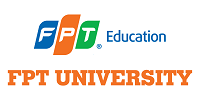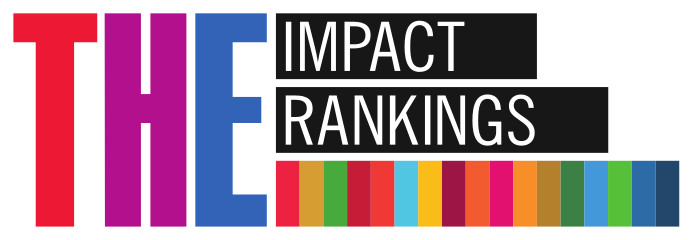Training Objectives
1.1 General objective:
Training bachelor’s degree students in Information Technology (IT)/Artificial Intelligence (AI) specialty to have the qualities and capacities to meet the needs of society, mastering professional knowledge and practice, being able to organize, implement and promote the creativity in jobs related to the trained specialties as well as pursue further education and research.
The training program aims to:
a) To equip students with fundamental knowledge of mathematics and the IT industry together with fundamental and specialized methodologies, technologies related to AI and Data science;
b) Train students the necessary virtues and skills in the professional working environment, know how to apply specialized knowledge of AI specialty into practical work
c) Provide students with a strong foundation in foreign languages, science, culture and society, promoting their autonomy and creativity in study, work and life
1.2 Specific objectives:
Graduates of the IT training program/AI specialty must demonstrate the following:
PO1. Having basic knowledge of social sciences, politics and law, security and defense, foundational knowledge of the IT industry & in-depth knowledge of the specialized training: techniques, methods, technologies, in-depth application areas; development trends in the world; at the same time understand the overall market, context, functions and tasks of the professions in the specialized training.
PO2. Be able to work as a full member of a professional team in the field of training: participate in designing, selecting techniques and technologies in line with development trends, solving technical problems; understand technology trends and user requirements; can do the complete solution development plan; performance management and change management in his or her part of the job; understand state policies in specialized fields.
PO3. Mastering professional skills and soft skills of 21st century citizens (thinking skills, work skills, skills in using work tools, life skills in a global society); at the same time, equip knowledge and sharpen the entrepreneurship mindset and entrepreneurial experience.
PO4. Can use English well in study and work and a second foreign language in normal communication.
PO5. Honesty, high discipline in study and work, know how to work effectively in groups; know how to behave culturally at work and in society; dynamic, creative and willing to learn constantly. Demonstrate professional attitude and behavior with the ability to conceive of ideas, design, implement and operate systems in the context of corporation and society.
Job positions after graduation
Graduates of the AI specialty have diverse job opportunities with a number of typical positions such as:
✔ AI application development engineer;
✔ Automation system operation and robot development engineer;
✔ Data architect;
✔ AI lecturers at universities;
✔ Researchers in the Artificial Intelligence field;
✔ Experts in consulting solutions to AI application in production and business;
✔ Pursue further education after graduating;
✔ Start-up.
Program Learning Outcomes
|
|
PLO Name |
PLO Description |
| 1 | PLO1 | Demonstrate basic knowledge of social sciences, politics and law, national security and defense, contributing to the formation of worldview and scientific methodology. |
| 2 | PLO2 | Demonstrate the mindset and ability to implement start-up projects, creative spirits, critical thinking and problem-solving skills. |
| 3 | PLO3 | Communicating and working in groups effectively in academic and practical environments. |
| 4 | PLO4 | Use English proficiently in communication and learning and be able to communicate simply in Japanese. |
| 5 | PLO5 | Demonstrate professional behaviors, morality, social responsibilities and a sense of dedication to community; being responsible and having professional integrity at work, understanding the conformity to labor discipline in accordance with the provisions of the Law and agencies in force. |
| 6 | PLO6 | Be mentally and physically strong, be capable of expressing national identity and integrating confidently into the world. |
| 7 | PLO7 | Develop self-study and lifelong learning spirit and capabilities to adapt to the constant change of technology and society. |
| 8 | PLO8 | Be able to explain and apply essential knowledge of algorithms, programming and specialized mathematics related to the field of information technology. |
| 9 | PLO9 | Be able to explain and apply knowledge and technologies in the field of information technology at a basic level. |
| 10 | PLO10 | Be able to demonstrate skills of programming and computer problem-solving. |
| 11 | PLO11 | Be able to apply knowledge of theory, practice and tools to analyze, design and deploy software applications. |
| 12 | PLO12 | Be able to apply knowledge and skills of the professional field to the context of corporate and social with diverse professional requirements. |
| 13 | PLO13 | Be able to understand and apply mathematical knowledge and common development tools in the field of artificial intelligence. |
| 14 | PLO14 | Be able to synthesize and analyze core technological knowledge and tools of artificial intelligence and data science to build intelligent systems applying artificial intelligence and data science. |
| 15 | PLO15 | Apply knowledge of AI technology and data science to solve practical problems for businesses. |
| 16 | PLO16 | Be able to update and utilize advanced tools and techniques in the field of AI in particular and IT in general. |
| 17 | PLO17 | Be able to develop professional AI products independently and in a team based on understanding of specification, design and commercialization of AI products. |
Volume of learning of the course
145 credits, excluding Orientaiton and General Training Program and Preparation English.
Enrollment object
✔ In accordance with regulations on formal university enrollment; college enrollment of the Ministry of Education and Training.
✔ In accordance with regulations on enrollment of FPT university.
Training process, graduating conditions
✔ In accordance with regulations on formal university and college training of the Ministry of Education and Training.
✔ In accordance with regulations on training of FPT University.
Evaluation method
✔ In accordance with regulations on examination and assessment in the training regulations of FPT University.



